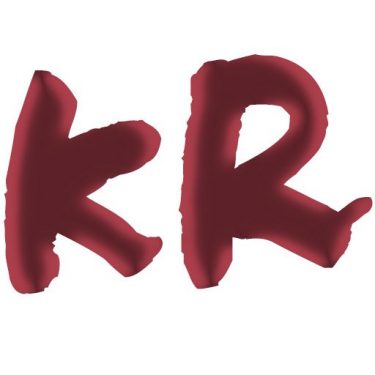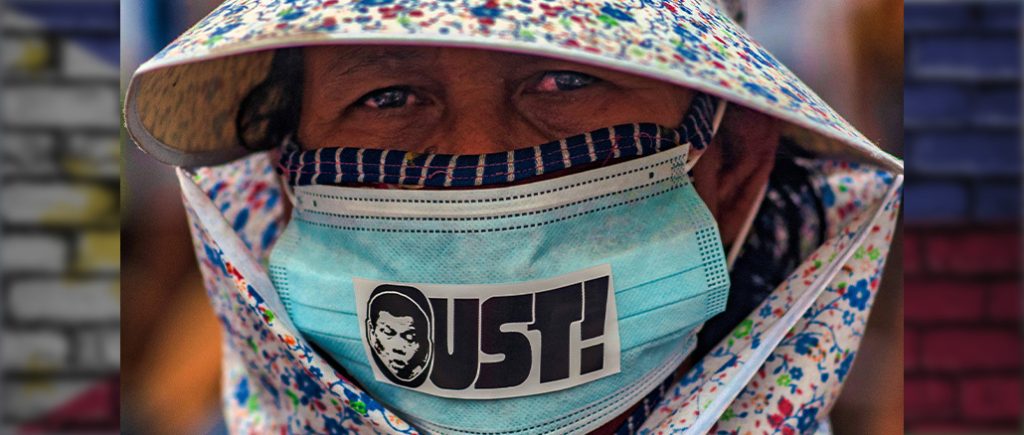In Southeast Asia, a region known for its heavy-handed responses to past crises, the COVID-19 pandemic has provided “the opportunity to enact emergency and temporary laws, suspend democratic activities, stifle political criticism, and introduce intrusive movement tracking and data gathering applications.” 1 Instead of making human rights the priority of their response to the pandemic, many governments in the Southeast Asian region have used the health crisis to strengthen their hold on power and crack-down on political dissent.
More than two years since the onset of the COVID-19 pandemic, it has become clear that in the hands of ethno-nationalists, populists, and autocrats, the health crisis can be used as “a pretext to adopt repressive measures for purposes unrelated to the pandemic.” 2
The Philippines is one of the countries in the region where the COVID-19 response can be described as “highly militarized.” 3 It implemented, what could be considered as, the strictest lock-down in Southeast Asia, but the country still had one of the highest rates of infection and COVID-19-related deaths. As of March 2022, the country ranks 26th in terms of number of infections 4 and 21st in terms of COVID-19-related deaths. 5 As a result of the strict lock-down and failure to manage the spread of the virus, the economy contracted by 9.5% in 2020, 6 the worst since the Second World War and comparatively, the worst performer among member-states of the Association of Southeast Asian Nations (ASEAN). 7 Apart from the impact on the economy, the “toxic lock-down culture” observed by the government resulted in a highly militarized response, which has treated COVID-19 as a peace and order concern, rather than as a health crisis. The government also utilized the internet and social media as a means to defend government initiatives and also to drown out dissent, which created an unstable environment which was detrimental for the observance of human rights.
The objective of this article is to explain the interplay between and among the Philippines’ militarized COVID-19 response, digital authoritarianism in the country, and human rights violations. More specifically, it hopes to answer the question: “To what extent has the Philippines’ militarized response, aided by digital authoritarianism, contributed to human rights violations during the COVID-19 pandemic?”
Duterte’s Militarized Approach to COVID-19
From the outset, the COVID-19 crisis was framed by the government as a type of war, which made the imposition of martial law-like conditions and the threat of harsh penalties appear to be more acceptable. 8 In one of his public addresses, the president even instructed the military and the police to adopt a zero-tolerance policy and warned violators that they could be shot if caught breaking COVID-19 regulations. Such an approach to the health crisis should not come as a surprise since the COVID-19 task force has been headed by military personnel and retired police officers. 9 While the militarized approach has little to show for in terms of positive results, the Duterte administration defended such an approach by tapping into its go-to weapon – digital authoritarianism.
In the early months of the pandemic, the Philippines enacted the Republic Act 11469 or the ‘Bayanihan to Heal as One Act’. This Act contains a controversial provision on the criminalization of fake news. The provision states that an individual who disseminates misinformation that has “no valid or beneficial effect on the population, and is clearly geared to promote panic, chaos, anarchy, fear and confusion’ shall be imprisoned for up to two months or be fined for up to one million pesos” (approx. US$ 20,000.00).
Talamayan noted that the Philippine government appeared to have been controlling COVID-19 information to conceal the inadequacies in its pandemic measures. 10 This was supported by Rappler, which argued that the Duterte administration used social media to push the narrative that the Philippines was doing well in its COVID-19 response. It observed that: “Online, social media users have made fake claims that supposed foreign figures and publications praised or recognized Duterte for his leadership in the COVID-19 response. These quotes were either fabricated or twisted.” 11 Conde observed that Philippine national and local governments used their authority, aided by COVID-19 emergency legislation, to crack down on critics, arguing that they are simply going after ‘peddlers of incorrect COVID-19 information’. 12 Essentially, those who were seen as opponents of the regime became easy targets for the authorities.
In recent years, it has become common for politicians and candidates in the Philippines to put vast troll armies on their payroll to smear opponents and prop themselves up. 13 It could even be argued that Duterte’s rise to power can be attributed to digital authoritarianism, thanks to Strategic Communications Laboratories, parent company of the infamous political consulting firm, Cambridge Analytica. 14
Nic Gabunada, a former advertising executive, said that since Duterte did not have the funds for political advertisements on mainstream media, his campaign team decided to “tap up the social media groups.” 15 These groups remained intact, and even expanded, after Duterte became president. They have been routinely used to demonize the president’s critics, including Vice President Leni Robredo, Senator Leila de Lima, and Rappler CEO and 2021 Nobel Laureate, Maria Ressa. A 2017 study by the University of Oxford claimed that around PhP 10million ($ 200,000.00) was used to spread propaganda to support President Duterte and target his critics. The study added that Duterte’s online machinery is composed of his political party, Partido Demokratiko Pilipino-Lakas ng Bayan, his social media manager Gabunada, volunteer groups, as well as paid cyber mercenaries. 16
In 2021, a dozen senators called for an investigation into allegations that public funds were being used to maintain the operation of troll farms. This was after a senator claimed that “a government under-secretary has been organizing internet troll farms across the country to target political rivals or those not aligned with President Rodrigo Duterte’s administration.” Moreover, the investigation was prompted when the Department of Finance awarded a PhP 909,122 (USD 18,000.00) consultancy contract on communications strategy to a public relations practitioner who was tagged by Facebook as the “operator behind a pro-Duterte fake account network which Facebook took down in March 2019”. 17
These incidents show that social media manipulation is the modus operandi of the Duterte administration. For this reason, President Duterte’s recent veto of the SIM card bill (April 2022), which required individuals to use their real name when registering their SIM card, did not really come as a surprise considering its possible impact on the operation of troll farms. 18
Impact on Human Rights
The Duterte administration’s highly militarized response led to the arrest of approximately 120,000 quarantine-protocol violators during the early months of the pandemic. 19 Various reports were also published concerning the abuse of authority by the military or police manning checkpoints and implementing quarantine protocols. Some detainees were reportedly punished by putting them into dog cages, coffins, and exposing them to the heat of the sun. 20 A number of detainees were held in groups in prison cells and in areas where there was a greater risk of transmitting the virus.
In addition to the COVID-19 lock-down, President Duterte’s ‘war on drugs’ campaign also intensified during this period. In a 2021 Human Rights Watch report, it was stated that killings increased by 50 percent during the pandemic. The Office of the High Commissioner for Human Rights (OHCHR) also observed that “military intimidation tactics”, specifically directed at social activists, did not stop during the COVID-19 lock-down. 21
Conclusion
I would argue that the militarized response adopted by the Philippine government can be attributed largely to its failure to manage the spread of COVID-19. Buttressed by digital authoritarianism, this type of response also resulted in numerous instances of human rights violations at the height of the COVID-19 pandemic. Overall, recent years in the Philippines have seen numerous developments related to digital authoritarianism that should be a cause for concern. The COVID-19 period has seen the weaponization of pre-existing threats to democracy and human rights in the Philippines.
Celito Arlegue
Celito Arlegue is the executive director of the Council of Asian Liberals and Democrats (CALD), a regional network of political parties in Asia. At present he also serves as a lecturer in the School of Diplomacy and Governance, De La Salle – College of St. Benilde in Manila, Philippines.
Banner: A woman wearing a face mask with a message of ousting the Philippine President Rodrigo Duterte in a protest on the 34th Anniversary of Mendiola Massacre in Mendiola, Manila on January 22, 2021. Kel Malazarte, Shutterstock
Notes:
- Asia Centre, COVID-19 and democracy in Southeast Asia, last modified 4 December 2020, https://asiacentre.org/covid-19_and_democracy_in_southeast_asia/ ↩
- Antonio Guterres, We are all in this together: Human rights and COVID-19 response and recovery, last modified 23 April 2020, https://www.un.org/en/un-coronavirus-communications-team/we-are-all-together-human-rights-and-covid-19-response-and ↩
- Michelle Bachelet, Exceptional measures should not be cover for human rights abuses and violations – Bachelet, last modified 27 April 2020, https://www.ohchr.org/EN/NewsEvents/Pages/DisplayNews.aspx?NewsID=25828&LangID=E ↩
- Statista, Number of novel coronavirus (COVID-19) cases worldwide by country, accessed 15 March 2022, https://www.statista.com/statistics/1043366/novel-coronavirus-2019ncov-cases-worldwide-by-country ↩
- Statista, Number of novel coronavirus (COVID-19) deaths worldwide by country, accessed 15 March 2022, https://www.statista.com/statistics/1093256/novel-coronavirus-2019ncov-deaths-worldwide-by-country ↩
- Beatrice Laforga, Philippines GDP shrinks by record 9.5% in 2020, Business World, 29 January 2021, https://www.bworldonline.com/philippine-gdp-shrinks-by-record-9-5-in-2020/ ↩
- Philippines to be Southeast Asia’s worst performer this year, Business World, 11 December 2020, https://www.bworldonline.com/philippines-to-be-se-asias-worst-performer-this-year/ ↩
- Karl Hapal, The Philippines’ COVID-19 response: Securitizing the pandemic and disciplining the pasaway, Journal of Current Southeast Asian Affairs, last modified 18 March 2021, https://doi.org/10.1177/1868103421994261 ↩
- Defense Secretary Delfin Lorenzana chairs the National Task Force against COVID-19, while retired Armed Forces of the Philippines (AFP) general Carlito Galvez Jr. was named as the chief implementer of the government’s pandemic response. Another retired AFP general, Interior Secretary Rodolfo Ano, serves as vice chairperson of the Inter-Agency Task Force on Emerging Infectious Diseases (IARF-EID). In that capacity, he recommended then Chief of the PNP Directorial Staff to lead the Joint Task Force COVID Shield, which aims to enforce IATF-EID protocols by coordinating police forces. See Simon Levien, Meet the generals leading COVID response in Indonesia and the Philippines, Rappler, last modified 25 August 2020, https://www.rappler.com/newsbreak/iq/meet-generals-leading-covid-response-philippines-indonesia/ ↩
- Fernan Talamayan, Statistical (in)capacity and government (in)decisions: The Philippines in the time of COVID-19, Conflict, Justice, Decolonization: Critical Studies of Inter-Asian Societies (2020), last modified 23 March 2021, https://papers.ssrn.com/sol3/papers.cfm?abstract_id=3808937 ↩
- 12 times social media boosted Duterte’s lies, Rappler, last modified 2 July 2021, https://www.rappler.com/newsbreak/iq/times-social-media-boosted-rodrigo-duterte-lies-false-statement ↩
- Carlos Conde, Killings in the Philippines up 50% during the pandemic, last modified 8 September 2020, https://www.hrw.org/news/2020/09/08/killings-philippines-50-percent-during-pandemic ↩
- Shashank Bengali, S. and Evan Halper, Troll armies, a growth industry in the Philippines, may soon be coming to an election near you, Los Angeles Times, last modified 19 November 2019, https://www.latimes.com/politics/story/2019-11-19/troll-armies-routine-in-philippine-politics-coming-here-next ↩
- Raissa Robles, How Cambridge Analytica’s parent company helped ‘man of action’ Rodrigo Duterte win the Philippine election, South China Morning Post, last modified 4 April 2018, https://www.scmp.com/news/asia/southeast-asia/article/2140303/how-cambridge-analyticas-parent-company-helped-man-actio ↩
- Trolls and triumph: a digital battle in the Philippines, BBC News, last modified 7 December 2016, https://www.bbc.com/news/blogs-trending-38173842 ↩
- Mikas Matsuzawa, Duterte camp spent $200,000 for troll army, Oxford study finds, Philippine Star, last modified 24 July 2017, https://www.philstar.com/headlines/2017/07/24/1721044/duterte-camp-spent-200000-troll-army-oxford-study-finds ↩
- 12 senators seek investigation into troll farms, Philippine Senate, last modified 12 July 2021, https://legacy.senate.gov.ph/press_release/2021/0712_pangilinan2.asp ↩
- President Duterte justified his veto by citing concerns on free speech and data privacy. Those who support the SIM card registration provision said that it is meant to prevent disinformation, trolling and other communication-aided criminal activities. ↩
- Michelle Bachelet, Exceptional measures should not be cover for human rights abuses and violations – Bachelet, last modified 27 April 2020, https://www.ohchr.org/EN/NewsEvents/Pages/DisplayNews.aspx?NewsID=25828&LangID=E ↩
- World Report 2021, Human Rights Watch (2021), https://www.hrw.org/sites/default/files/media_2021/01/2021_hrw_world_report.pdf ↩
- Freedom in the world 2021: Democracy under siege, Freedom House (2021), https://freedomhouse.org/report/freedom-world/2021/democracy-under-siege ↩

